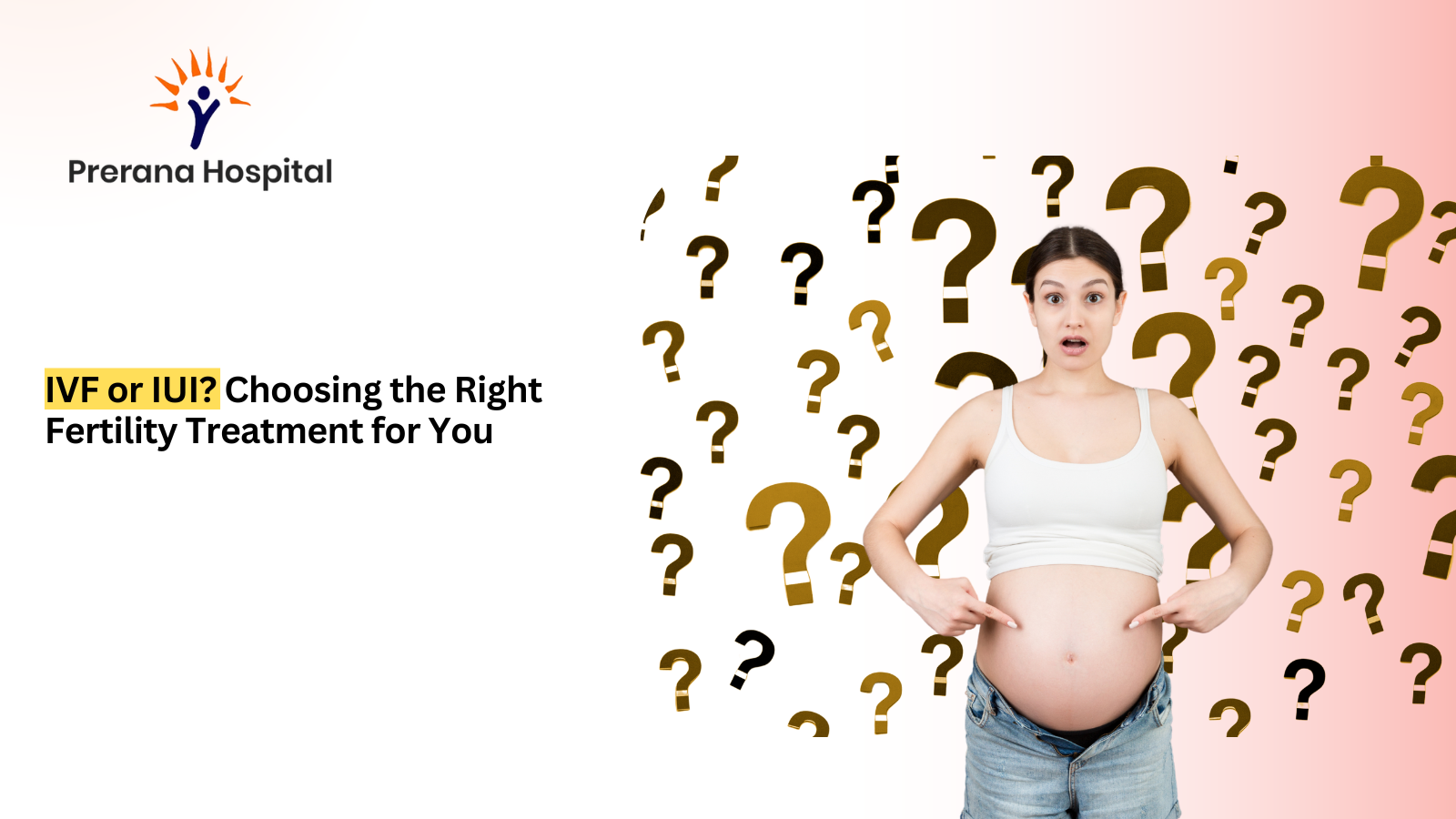

Please call +91 72042 70871 for outpatient appointments. The hospital is available for emergency 24/7.


Struggling with infertility? You’re not alone; 1 in 6 people around the globe face it. With the rise of assisted reproductive technologies, treatments like Intrauterine Insemination (IUI) and In Vitro Fertilisation (IVF) have become common solutions. However, choosing the right fertility treatment can be overwhelming. Read on to learn about the differences between IVF and IUI, helping you decide which is best suited for your needs and fertility journey.
Intrauterine Insemination (IUI) is a comparatively simple and less invasive fertility treatment. In this procedure, processed semen is directly inserted into the uterus during/post ovulation, increasing the chances of fertilisation. The semen sample is processed and concentrated before being placed into the uterus using a catheter. This is timed around the woman's ovulation to increase the likelihood of conception.
Best suited for:
In Vitro Fertilisation (IVF) is a more complex and invasive fertility treatment that involves fertilising an egg outside the body. This process can help couples with more severe infertility issues.
IVF offers a higher success rate, especially in complex fertility cases, but is more invasive and expensive compared to IUI.
For more details about the different types of IVF treatments available in India and how they differ, check out this blog: What Are the Different Types of IVF Treatments Available in India?
Here’s a comparison of IVF and IUI to help you better understand their differences:
| Aspect | IUI | IVF |
| Invasiveness | Less invasive | More invasive (egg retrieval, lab fertilisation) |
| Cost | More affordable | Higher cost due to additional steps and lab work |
| Success Rate | Lower, but it depends on age and health | Higher, especially for complex cases |
| Timeframe | Shorter, typically within one month | Longer, usually takes 3-6 months |
| Suitability | Best for mild infertility issues | Best for severe infertility or failed IUI |
Success rates for IVF vs IUI vary depending on factors such as age, health, and specific fertility issues. On average:
Fertility evaluations will play a key role in determining the right treatment for you.
IUI is generally the first choice for couples with minor fertility issues. It’s ideal for:
If IUI fails after 3–4 cycles, your doctor might recommend moving to IVF. For a detailed fertility evaluation, you can explore Prerana Hospital’s Fertility Evaluation Service.
IVF is recommended when less invasive treatments like IUI are unlikely to succeed. It’s particularly suitable for:
The cost difference between IVF and IUI is significant. While IUI is generally more affordable, IVF can cost several times more due to its complexity. Aside from financial considerations, it’s important to acknowledge the emotional strain of fertility treatments. IVF, with its longer process and more intensive procedures, can be emotionally taxing.
There is no one-size-fits-all solution when it comes to fertility treatments. The decision between IUI and IVF depends on individual factors like fertility health, age, and financial considerations. A personalised fertility assessment is crucial in determining the best course of action. If you're considering your fertility treatment options, the best course of action is to start with a consultation with a fertility expert to explore which treatment might be the best for you.
Still unsure whether IUI or IVF is right for you? Choosing the right fertility treatment is a big decision, and our team of experienced fertility experts at Prerana Hospital is here to guide you. We offer a personalised treatment plan that serves your unique needs, ensuring the best possible results. Contact us today for a consultation and embark on your path towards parenthood.